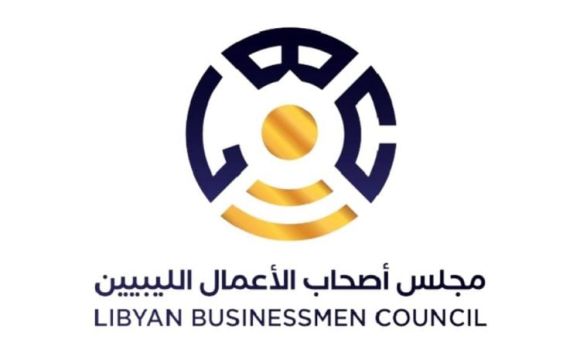ISO Implementation in Libya, Who to Hire?

ISO implementation in Libya has become a crucial focus for businesses aiming to enhance quality and competitiveness. With the International Organization for Standardization recognised globally, Libyan organisations adopting ISO standards demonstrate their commitment to excellence and efficiency.
Addressing ISO implementation is vital as it involves rigorous audits and assessments, ensuring compliance with international benchmarks. Effective documentation and process improvements are key components that drive operational success.
Leading the field in Libya, Qabas | Consulting & Training specialises in guiding organisations through the ISO certification journey, ensuring seamless integration of best practices and standards.
Table of Contents
Overview of ISO Implementation in Libya
ISO implementation in Libya follows a structured approach aligned with international standards to ensure quality, safety, and efficiency within organizations. The process begins with comprehensive documentation, where businesses record their processes, policies, and procedures in accordance with specific ISO requirements. This documentation serves as a foundational reference for employees and auditors during the certification process.
Once documentation is established, organizations proceed to implement necessary changes and improvements. This phase includes training personnel, establishing new workflows, and integrating ISO standards into daily operations. Effective implementation ensures that the organization meets the stringent criteria set by ISO, facilitating a smooth transition towards certification.
An essential component of ISO implementation is the internal audit. Conducted periodically, internal audits assess the effectiveness of the implemented processes and identify any nonconformities. These audits are crucial for pinpointing areas that require further enhancement, thereby ensuring that the organization remains compliant and prepared for external assessments.
Libyan organizations must adhere to national laws and legal frameworks that support ISO standards. Compliance with these regulations not only aids in achieving certification but also reinforces the organization’s commitment to maintaining high-quality standards. Historical data indicates a growing trend of ISO adoption in Libya, reflecting the country’s dedication to aligning with global best practices.
In navigating the complexities of ISO implementation, many Libyan businesses collaborate with consulting firms specializing in ISO standards. These experts provide invaluable guidance, helping organizations streamline their processes and achieve certification efficiently. Located in Tripoli, Qabas Consulting & Training stands out as a leading authority in this field, offering tailored solutions to meet diverse business needs across North Africa.
By embracing ISO standards, Libyan organizations demonstrate their dedication to excellence and continuous improvement. This commitment not only enhances operational effectiveness but also boosts competitiveness in the global market, positioning Libyan businesses as reliable partners on the international stage.
Key ISO Standards for Libyan Businesses
Libyan businesses adopt various ISO standards to enhance quality, environmental management, and occupational health and safety. These certifications align organisations with international best practices, fostering operational excellence and competitiveness.
ISO 9001: Quality Management Systems
ISO 9001 establishes a framework for Quality Management Systems (QMS), enabling organisations to consistently deliver high-quality products and services. Key focus areas include customer satisfaction, leadership, employee engagement, process management, and continuous improvement. Since its inception in 1987, ISO 9001 has undergone several revisions, with the latest version published in 2015. Implementing ISO 9001 enhances operational efficiency, boosts customer trust, and provides a competitive advantage in both local and global markets. Businesses across various sectors, including manufacturing, healthcare, and IT, benefit from this standard by streamlining their processes and ensuring consistent quality.
ISO 14001: Environmental Management Systems
ISO 14001 outlines the requirements for an Environmental Management System (EMS), assisting organisations in minimising their environmental impact. This standard promotes sustainable practices through the establishment of an environmental policy, planning for improvement, implementing procedures, evaluating performance, and fostering continual improvement. By adhering to ISO 14001, businesses ensure regulatory compliance and contribute to long-term environmental sustainability. Sectors such as oil and gas, construction, and environmental services particularly benefit from this standard by effectively managing their ecological footprint and enhancing their reputation for environmental responsibility.
ISO 45001: Occupational Health and Safety Management Systems
ISO 45001 provides a robust framework for Occupational Health and Safety Management Systems (OHSMS), focusing on reducing workplace hazards and ensuring employee safety. This standard emphasises leadership commitment, worker participation, risk identification, and incident prevention. Implementing ISO 45001 helps organisations create a safer work environment, comply with legal requirements, and reduce workplace injuries and illnesses. Industries like construction, manufacturing, and transportation gain significant advantages by adopting this standard, as it not only safeguards employees but also enhances overall organisational performance and resilience.
Supporting ISO Implementation
Successful ISO implementation in Libya often involves expertise from consulting firms specialised in operations, risk, and strategy. Qabas Consulting & Training, based in Tripoli, provides valuable support through gap analysis, documentation development, staff training, and internal audits. Their guidance ensures that businesses align their Quality Management Systems with international standards, facilitating smooth certification processes and ongoing compliance. By partnering with experienced consultants, Libyan organisations can effectively navigate the complexities of ISO certification, achieving sustained excellence and market competitiveness.

Implementation Process
Implementing ISO standards in Libya involves a structured approach to ensure compliance and enhance organisational efficiency.
Planning and Preparation
Begin by conducting a gap analysis to identify areas needing alignment with ISO requirements. Establish a project team responsible for overseeing the implementation process. Develop a detailed project plan outlining timelines, resources, and key milestones. Ensure that all relevant stakeholders are engaged from the outset to foster a collaborative environment.
Documentation and Training
Create comprehensive documentation of existing processes, policies, and procedures in accordance with ISO standards. Update or develop new documents where necessary to address identified gaps. Provide targeted training programmes to staff, ensuring they understand the ISO requirements and their roles in maintaining compliance. Effective documentation and training are crucial for embedding ISO standards into daily operations.
Internal Audits and Assessments
Conduct regular internal audits to evaluate the effectiveness of the implemented ISO processes. Process owners, supported by internal and external consultants, perform these audits to identify strengths and areas for improvement. Findings from internal audits are reviewed in management meetings to develop corrective actions. Pre-assessments may also be carried out to ensure readiness for external audits. Firms like Qabas Consulting & Training offer expertise in facilitating these audits, ensuring thorough and accurate assessments.
Benefits of ISO Implementation in Libya
Implementing ISO standards in Libyan organisations provides a multitude of advantages that enhance both operational and strategic facets of business operations.
Enhanced Credibility and Reputation
Achieving ISO certification signifies a commitment to quality and excellence. This accreditation establishes trust with clients, partners, and stakeholders, reinforcing the organisation’s reputation in the market.
Increased Customer Confidence
ISO standards ensure that products and services meet consistent quality criteria. Consequently, customers gain assurance in the reliability and effectiveness of the offerings, fostering long-term loyalty.
Improved Efficiency and Productivity
Adopting ISO frameworks streamlines processes, eliminating inefficiencies and reducing waste. This optimisation leads to higher productivity levels and more effective resource management.
Expanded Market Opportunities
ISO certification opens doors to international markets by meeting global quality standards. Organisations can compete more effectively on a global scale, attracting diverse clientele and expanding their reach.
Regulatory Compliance
Aligning with ISO standards ensures adherence to national and international regulations. This compliance minimises the risk of legal issues and enhances the organisation’s ability to operate seamlessly within various regulatory environments.
Stronger Supplier Relationships
ISO implementation standardises procurement processes, fostering transparent and reliable relationships with suppliers. Consistent quality standards facilitate smoother collaborations and mutual growth.
Continual Improvement Culture
ISO frameworks promote a culture of continuous improvement. Organisations regularly assess and refine their processes, driving ongoing enhancements in quality and performance.
Cost Reduction
Efficient processes and reduced waste inherent in ISO standards contribute to significant cost savings. Organisations can allocate resources more effectively, improving their financial health.
Employee Engagement and Satisfaction
Clear processes and defined roles enhance employee understanding and involvement. This clarity boosts morale, leading to higher job satisfaction and increased retention rates.
| Benefit | Impact |
|---|---|
| Enhanced Credibility | Builds trust with clients and stakeholders |
| Increased Customer Confidence | Ensures consistent quality and reliability |
| Improved Efficiency and Productivity | Streamlines processes and reduces waste |
| Expanded Market Opportunities | Enables competition in international markets |
| Regulatory Compliance | Ensures adherence to laws and standards |
| Stronger Supplier Relationships | Fosters transparent and reliable partnerships |
| Continual Improvement Culture | Promotes ongoing enhancements in quality and performance |
| Cost Reduction | Achieves significant savings through efficient processes |
| Employee Engagement and Satisfaction | Enhances morale and reduces turnover rates |
Qabas Consulting & Training supports Libyan organisations in leveraging these benefits through expert guidance and comprehensive training programs. By facilitating the adoption of ISO standards, Qabas ensures that businesses can fully realise the advantages of certification, positioning themselves for sustained success in both local and global markets.

Challenges and Solutions
ISO implementation in Libya encounters several obstacles that organisations must address to achieve compliance and operational excellence. Understanding these challenges and adopting effective solutions facilitates successful integration of ISO standards.
Key Challenges
- Limited Awareness and Understanding
Many Libyan organisations lack comprehensive knowledge of ISO standards, hindering proper implementation. This gap affects the ability to align processes with international benchmarks effectively.
- Resistance to Change
Internal resistance can impede the adoption of new procedures and practices required by ISO standards. Employees may be hesitant to modify existing workflows, impacting the overall implementation process.
- Insufficient Expertise and Training
A shortage of trained personnel and expertise in ISO standards poses a significant barrier. Without skilled staff, maintaining compliance and conducting necessary audits becomes challenging.
- Resource Constraints
Allocating adequate financial and human resources for ISO implementation is often difficult. Limited budgets can restrict the ability to invest in necessary technologies and training programmes.
- Complex Regulatory Environment
Navigating Libya’s regulatory landscape adds complexity to ISO implementation. Organisations must ensure that their processes comply with both ISO standards and local regulations.
- Comprehensive Training Programmes
Implementing targeted training increases staff understanding of ISO standards. Educational initiatives ensure that employees are well-equipped to adhere to new procedures and maintain compliance.
- Engaging Expert Consultants
Partnering with specialized consulting firms assists organisations in navigating the complexities of ISO implementation. Experts provide guidance on aligning processes with standards and conducting effective audits.
- Allocating Adequate Resources
Ensuring sufficient financial and human resources supports the implementation and maintenance of ISO standards. Strategic investment in necessary tools and training enhances overall effectiveness.
- Developing Detailed Documentation
Creating thorough documentation of processes, policies, and procedures aligns organisational practices with ISO requirements. Clear documentation facilitates consistency and accountability across all departments.
- Conducting Regular Internal Audits
Regular internal audits help assess the effectiveness of implemented processes and identify areas for improvement. Continuous evaluation ensures sustained compliance and readiness for external assessments.
- Leveraging Local Expertise
Local consulting firms, such as Qabas Consulting & Training, provide essential support in gap analysis, documentation development, and staff training. Their expertise aids Libyan organisations in efficiently achieving ISO certification and ongoing compliance.
By addressing these challenges with targeted solutions, Libyan organisations can successfully implement ISO standards, enhancing their quality management and competitive edge in the global market.
Maintaining ISO Certification
Maintaining ISO certification requires continuous adherence to ISO standards and a commitment to ongoing improvement. Organisations must ensure that their processes, policies, and procedures remain aligned with the International Organization for Standardisation’s criteria. This alignment involves regular monitoring and adjustments to operational systems to uphold compliance.
Internal audits play a crucial role in evaluating the effectiveness of the management system. Conducting these audits systematically identifies areas for enhancement and ensures that processes function as intended. Additionally, management review meetings are essential for assessing the performance of the system against strategic objectives, fostering a culture of quality and excellence within the organisation.
To sustain certification, organisations must undergo periodic external audits conducted by accredited certification bodies. Preparing for these audits involves thorough documentation review and process verification to demonstrate ongoing compliance. Maintaining accurate and up-to-date records simplifies the audit process and reinforces the organisation’s dedication to maintaining high standards.
Continuous improvement is fundamental to sustaining ISO certification. Regular training programmes keep staff informed about updates to standards and their roles in maintaining compliance. Implementing corrective actions based on internal audit findings and management reviews ensures that the organisation continually enhances its processes.
Qabas Consulting & Training supports organisations in Libya by providing expert guidance in maintaining ISO certification. Their services include conducting internal audits, facilitating management reviews, and assisting with comprehensive documentation. By leveraging their expertise, businesses can effectively uphold their ISO standards and navigate the complexities of ongoing compliance.
Conclusion
Adopting ISO standards in Libya is a pivotal move for businesses aiming to enhance quality and competitiveness. Organisations embracing these standards showcase their commitment to excellence and align themselves with global best practices. Collaborating with expert consultants like Qabas Consulting & Training ensures a seamless implementation process and effective integration into daily operations.
As more Libyan businesses achieve ISO certification, their credibility and reputation grow both locally and internationally. Maintaining these standards fosters a culture of continuous improvement and operational excellence. This dedication not only boosts market opportunities but also positions Libyan organisations as reliable partners on the global stage. Embracing ISO standards ultimately drives sustained growth and success in an increasingly competitive landscape.
Frequently Asked Questions
What is ISO implementation and why is it important for Libyan businesses?
ISO implementation involves adopting International Organization for Standardization (ISO) standards to enhance quality, efficiency, and competitiveness. For Libyan businesses, implementing ISO standards demonstrates a commitment to excellence, aligns operations with global benchmarks, and improves credibility. This process helps organisations streamline their processes, ensure regulatory compliance, and boost customer confidence. By adhering to internationally recognized standards, Libyan companies can compete more effectively in the global market, attract new customers, and establish themselves as reliable partners internationally.
How can ISO standards improve competitiveness for companies in Libya?
ISO standards improve competitiveness by ensuring consistent quality, enhancing operational efficiency, and fostering innovation. For Libyan companies, adopting ISO standards like ISO 9001 for Quality Management or ISO 14001 for Environmental Management signals a commitment to high standards. This not only attracts customers and investors but also opens up new market opportunities. Additionally, ISO certification can lead to cost reductions through improved processes and reduce risks by ensuring compliance with international regulations. Overall, ISO standards help Libyan businesses differentiate themselves in a competitive global marketplace.
What are the key steps in implementing ISO standards in Libya?
Implementing ISO standards in Libya involves several key steps:
1. Documentation: Comprehensive documentation of processes, policies, and procedures in line with ISO requirements.
2. Planning and Preparation: Conducting a gap analysis, establishing a project team, and developing a detailed project plan.
3. Stakeholder Engagement: Involving relevant stakeholders to foster a collaborative environment.
4. Implementation: Making necessary changes, including training personnel and adjusting workflows.
5. Internal Audits: Assessing process effectiveness and compliance.
6. Certification: Undergoing external audits by accredited bodies.
7. Continuous Improvement: Maintaining and improving the management system through regular reviews and updates.
What are the main ISO standards adopted by Libyan organisations?
Libyan organisations primarily adopt the following ISO standards:
ISO 9001: Quality Management Systems, focusing on customer satisfaction and process improvement.
ISO 14001: Environmental Management Systems, aimed at reducing environmental impact.
ISO 45001: Occupational Health and Safety Management Systems, ensuring workplace safety.
ISO 27001: Information Security Management Systems, protecting data and systems.
ISO 22301: Business Continuity Management Systems, safeguarding against disruptions.
These standards help organisations enhance operational excellence, ensure compliance, and improve overall competitiveness.
What are the benefits of ISO certification for businesses in Libya?
ISO certification offers numerous benefits for Libyan businesses, including:
Enhanced Credibility: Demonstrates commitment to quality and standards.
Increased Customer Confidence: Builds trust with clients and stakeholders.
Improved Efficiency: Streamlines processes, reducing costs and increasing productivity.
Expanded Market Opportunities: Opens access to global markets and new clients.
Regulatory Compliance: Ensures adherence to national and international regulations.
Continuous Improvement: Fosters a culture of ongoing enhancement and innovation.
Better Supplier Relationships: Strengthens partnerships through standardized processes.
These benefits collectively contribute to sustained business growth and competitiveness.
What challenges do Libyan organisations face when implementing ISO standards?
Libyan organisations encounter several challenges in ISO implementation, including:
Limited Awareness: Lack of understanding of ISO standards and their benefits.
Resistance to Change: Employees may resist new processes and procedures.
Insufficient Expertise: Lack of in-house knowledge and expertise to manage ISO projects.
Resource Constraints: Limited financial and human resources to dedicate to implementation.
Complex Regulatory Environment: Navigating local regulations that may complicate compliance.
Documentation Requirements: The need for extensive and accurate documentation.
Maintaining Compliance: Ensuring ongoing adherence to standards post-certification.
Addressing these challenges requires comprehensive training, expert consultancy, and effective resource allocation.
How can consulting firms like Qabas Consulting & Training assist with ISO certification?
Consulting firms like Qabas Consulting & Training offer essential services to facilitate ISO certification, including:
Gap Analysis: Identifying areas needing alignment with ISO standards.
Documentation Development: Creating and organizing required processes and procedures.
Training Programmes: Educating staff on ISO requirements and their roles.
Internal Audits: Assessing compliance and effectiveness of implemented systems.
Project Management: Developing and overseeing detailed implementation plans.
Continuous Support: Assisting with maintaining certification through ongoing guidance and reviews.
Their expertise helps Libyan organisations navigate the complexities of ISO certification efficiently and effectively.
Why is maintaining ISO certification important for Libyan businesses?
Maintaining ISO certification is crucial as it ensures ongoing compliance with international standards. It involves continuous monitoring, regular internal audits, and periodic external assessments to uphold quality and operational excellence. Maintaining certification:
Ensures Consistency: Keeps processes aligned with ISO requirements.
Promotes Continual Improvement: Encourages ongoing enhancements in operations.
Sustains Credibility: Maintains trust and confidence among clients and stakeholders.
Facilitates Market Access: Continues to open opportunities in global markets.
Reduces Risks: Minimizes operational and compliance-related risks.
Ongoing maintenance helps businesses stay competitive and uphold high standards over time.
How does ISO certification enhance credibility and reputation?
ISO certification enhances credibility by demonstrating that an organisation meets internationally recognized standards for quality, safety, and efficiency. It signals to clients, partners, and stakeholders that the business is committed to maintaining high standards and continuous improvement. This certification:
Builds Trust: Increases customer confidence in the reliability and quality of products or services.
Differentiates from Competitors: Sets the company apart in the marketplace.
Attracts New Business: Opens doors to new markets and clients seeking certified partners.
Enhances Brand Image: Strengthens the company’s reputation for excellence and reliability.
Overall, ISO certification serves as a powerful endorsement of an organisation’s dedication to quality and best practices.
What role do internal audits play in ISO implementation?
Internal audits are a critical component of ISO implementation, serving to:
Assess Compliance: Evaluate whether processes and procedures meet ISO standards.
Identify Improvement Areas: Highlight weaknesses and areas needing enhancement.
Ensure Readiness: Prepare the organisation for external certification audits.
Monitor Effectiveness: Check the efficiency and effectiveness of implemented systems.
Promote Accountability: Encourage responsibility among employees for maintaining standards.
Facilitate Continuous Improvement: Provide insights for ongoing enhancements and refinements.
Regular internal audits help maintain high standards, ensure compliance, and support continual improvement within the organisation.
How does ISO certification benefit employee engagement and satisfaction?
ISO certification benefits employee engagement and satisfaction by:
Clarifying Roles: Clearly defines roles and responsibilities, reducing confusion.
Improving Work Processes: Streamlines workflows, making tasks more efficient and manageable.
Enhancing Training: Provides opportunities for professional development and skill enhancement.
Fostering a Positive Culture: Promotes a culture of quality, safety, and continuous improvement.
Increasing Job Satisfaction: Employees take pride in working for a certified, reputable organisation.
Encouraging Feedback: Involves employees in the improvement process, valuing their input.
These factors contribute to a more motivated, satisfied, and productive workforce.
Championing Synergistic Growth
The Euro-Libyan Trade Center (ELTC), is a non-partisan, non-profit trade promotion agency working in cooperation with the GUCC to strengthen economic relations between Europe and Libya.
ELTC strategically positions itself as an enabler of transcontinental economic activities, offering a structured platform for entities with vested regional commercial interests. We are dedicated to enhancing operational capacities, broadening market access, and heightening the competitive index of enterprises within the region.
For tailored organisational strategy consultation, kindly reach us at +44 207 193 5556 or submit an inquiry via the provided contact form.
Follow us on:
- Twitter: https://twitter.com/eurolibyan
- LinkedIn: https://www.linkedin.com/company/eurolibyan
Latest News & Publications
Ready to Elevate Your Business?
At the forefront of our mandate to drive economic development, we are dedicated to fostering meaningful partnerships with regional stakeholders, businesses, and professionals across diverse industries, charting a course towards a brighter, shared future.
For inquiries, please complete the form below or reach out to us at +44 207 193 5556



